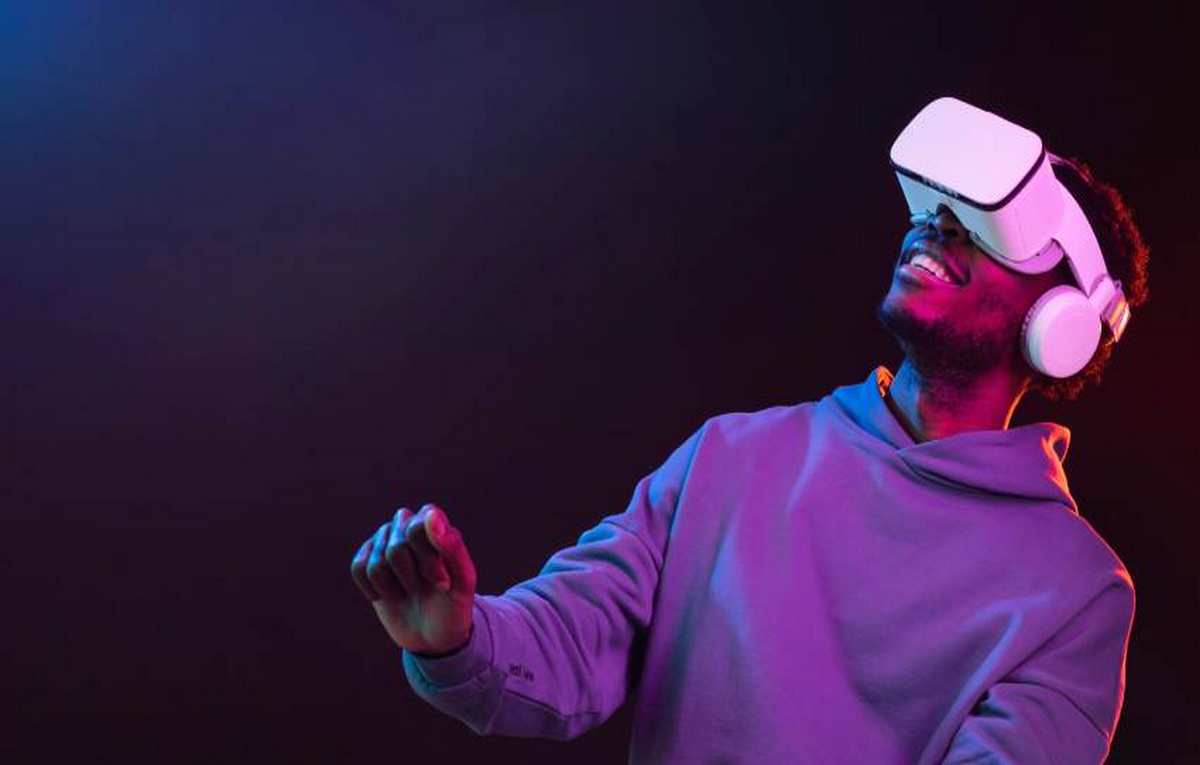
When we talk about industries transformed by tech, online gaming takes a notable spot. The buzz around virtual reality (VR) isn’t just about cool graphics or next-gen consoles; it’s about the next phase of online casinos. Projections suggest the VR gaming niche could reach a staggering $1.74 billion by 2025. In this article, we will look at how VR is altering the digital dice and cards of online casinos.
Understanding VR in the Casino Context
Virtual Reality (VR) is a technology that’s often spoken about, but to truly grasp its impact, one must understand its essence. VR is more than just advanced graphics; it’s about creating a bridge, a seamless transition, between our tactile world and the vast digital space. For online gaming enthusiasts, this transition transforms the experience entirely. Instead of just being an observer, clicking away on a screen, VR places the gamer right in the middle of the action.
Imagine traditionally playing online poker. Now, instead of staring at a 2D table layout, VR allows players to ‘sit’ at a virtual table, ‘look’ around to see other players, ‘hear’ the shuffle of cards, and even engage in conversations. It’s akin to comparing watching a football match on your home screen to the electrifying experience of shouting and cheering amidst thousands of fans in a stadium.
Online Casinos: The Evolution Game
Online casinos aren’t strangers to technology. From leveraging intricate algorithms that ensure game fairness to adopting artificial intelligence for personalized gaming suggestions, online casinos have consistently been at technology’s bleeding edge. VR is simply the next logical step. What started as basic card games on a pixelated screen could soon be a 360-degree casino experience, with players “sitting” at tables, “interacting” with dealers, and “meeting” other players.
Integrating Live Dealers with VR
The introduction of live dealers in online gaming represented a significant leap towards emulating the authentic casino atmosphere. Live dealers bridged the gap between the cold algorithm-driven results and the warmth and unpredictability that human dealers bring to the table. Players, from the comfort of their homes, could interact, place bets, and feel the suspense as if they were in a brick-and-mortar casino. However, as advanced as this technology is, there’s still a sense of separation; a screen that acts as a barrier between the player and the game.
Enter Virtual Reality
By merging VR with live dealer games, we’re poised at the brink of a more profound immersion. Consider this: instead of just viewing a dealer from a fixed camera angle, with VR, you could choose where to stand or sit at the table. Want a closer look at the dealer’s hand in a game of blackjack? Lean in. Want to exchange a congratulatory gesture with a player after a successful bet? VR can facilitate that.
Potential Challenges and the Path Forward
However, like any tech evolution, integrating VR into online casinos isn’t without challenges. High-quality VR requires robust infrastructure, both on the server side for the casinos and the user end for players. Internet speeds, hardware compatibility, and even physical considerations (like VR-induced motion sickness) are barriers that developers need to address. But, there’s significant motivation to tackle these challenges. The immersive nature of VR can lead to increased player retention. Gamers aren’t just looking for a platform to place bets; they want experiences.
Online players can look forward to lifelike reproductions of places like Las Vegas, connecting with gamblers around the world, and even more. The future of virtual reality in the casino industry will continue to develop and improve over the coming years. This will completely change the casino experience as we know it, making it more immersive and entertaining for gamers of all skill levels.
Broadening the Horizon: VR in Sports Betting
Another exciting aspect of the future of gambling is virtual reality in sportsbooks. Imagine this: instead of merely placing a bet on a football match, a user could “attend” the game, watch key players, and make betting decisions based on in-game observations, all from their living room. Integrating VR into sportsbooks could make betting not just about outcomes, but also about the immersive experience of the game.
Final Thoughts: The Future is Virtually Here
The potential marriage between VR and online casinos is more than just a tech gimmick; it’s the evolution of an industry always hungry for innovation. While challenges lie ahead, the combined drive of tech developers and the gaming industry might ensure that VR’s integration into online casinos is not a question of “if” but “when.” As technology continues its relentless march forward, the lines between the virtual and real continue to blur, promising a future for online gaming that’s as realistic as it is exciting.



